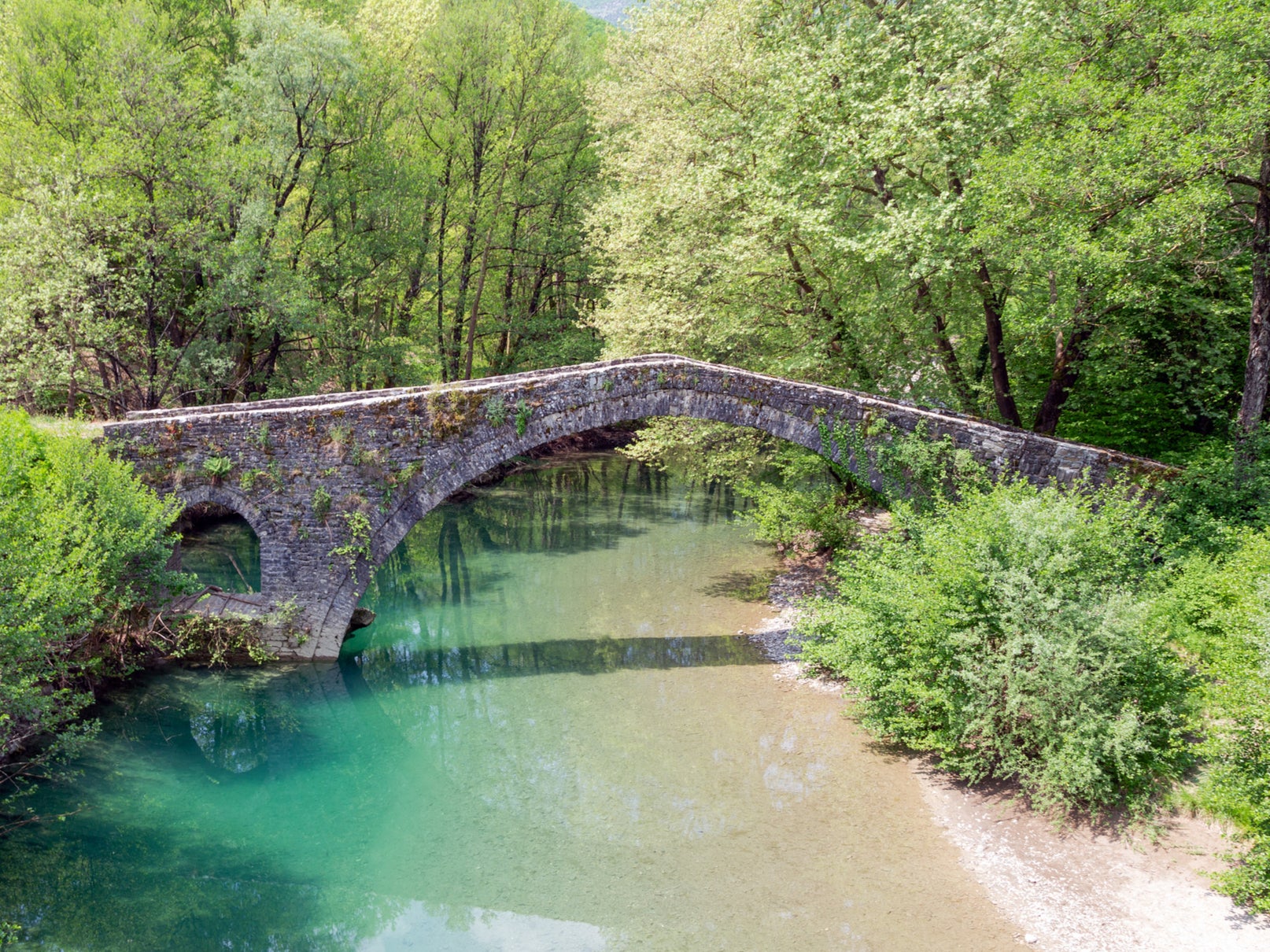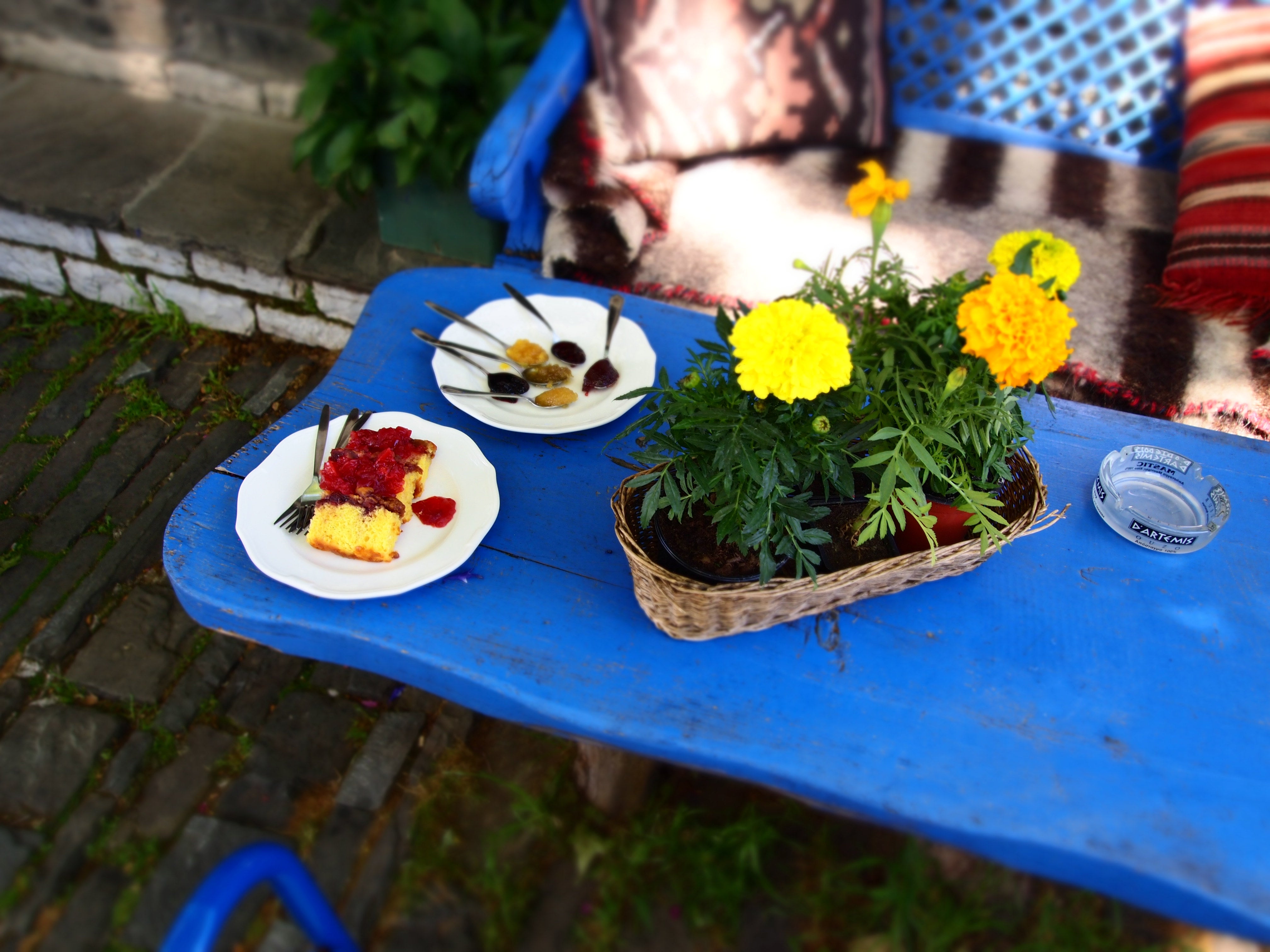It’s possible I got a bit carried away. We were standing on the central arch of the Kalogeriko-Plakidas bridge in central Zagori, on a crystal-clear summer morning. An emerald-coloured river snaked away through a valley of deep green trees towards a mountain village. There was the slightest breath of wind.
I announced to my somewhat bemused wife that I was going to change my will. I wanted my ashes to be cast from this very spot, right there in the heart of Zagori. Given I’d no connection to the place and that we’d only been there a couple of days, it was a slightly weird thing to do.
Back home, when the enchantment of that trip wore off, I decided the Jones mortal remains wouldn’t end up in that patch of Greece after all. But the spell of the place lingered. Was I getting carried away? Now I’d get the chance to find out. After several years away, I was about to return to Zagori. But what was it about this place that had moved me so dramatically?
First – where, again? Zagori is a mountainous region in the Epirus region of northwest Greece. You’ll also see it called Zagorichoria (hard to say: try it while choking on an almond) or after its most celebrated landmark, Vikos.

Read more on Greece travel:
We drive from Athens, over the Patras bridge – is there a finer 21st-century bridge in Europe? – and stop off at the village of Zitsa, near the regional centre of Ioannina. The poet Lord Byron had a great night here in 1810. and I wanted to see what he so liked about the place. The answer was the wine, the hospitality and the views. There, on the horizon, is a line of snow-capped peaks: the Zagori.
I might as well relieve the tension now. As we drive through the first Zagori village, Mesovouni, it is obvious nothing had changed. It’s still heaven and no-one has been allowed to pollute it.
The region became very prosperous during the long centuries of Ottoman overlordship – especially in the 18th century, when its close connection to the Balkans states and beyond made its people fabulously rich. Two groups especially prospered: herbalist healers, the so-called ‘Vikos doctors’, who became renowned in the Ottoman court; and bridge builders.

Click Here to Read the Full Original Article at The Independent Travel…
